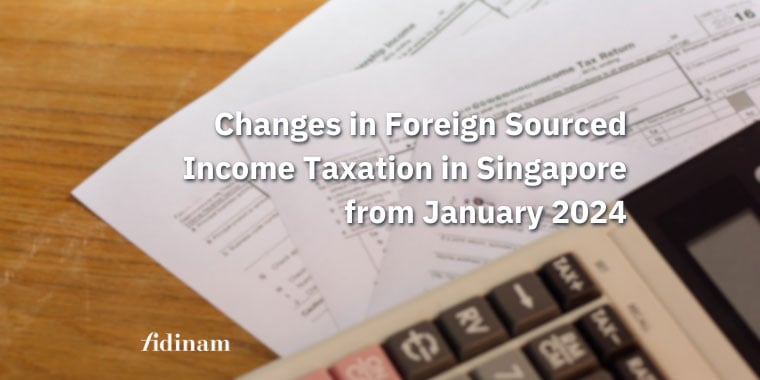
Beginning January 1, 2024, Singapore will start imposing taxes on foreign-sourced disposable gains, following the recent parliamentary approval to modify the nation's Income Tax Act.
The amendments, referred to as Section 10L, state that capital gains from the sale of foreign assets will be subject to tax if they are received in Singapore and if the associated entity lacks ‘economic substance’ in Singapore. The determination of ‘economic substance’ for each case will be individually evaluated.
The Singaporean Ministry of Finance has clarified that these changes in Section 10L are in line with the European Union’s Code of Conduct Group Guidance (COGC), which was established by EU member states to promote a fair tax system.
At present, Singapore taxes foreign-sourced income only when it is remitted into the country. This pertains to revenue-type incomes such as dividends, royalties, and interest. Notably, Singapore does not impose a capital gains tax.
However, with Section 10L, a form of capital gains tax is effectively introduced for certain entity types, marking a significant shift in Singapore's tax system.
Section 10L targets entities within consolidated multinational entities (MNE) groups, particularly those with business operations outside Singapore. However, it does not apply to domestic groups.
Entities outside the scope of Section 10L include:
An entity is considered as ‘excluded’ based on its role as a ‘pure equity-holding entity’, primarily holding shares in other entities and not generating income from any other source than dividends from these shares.
Pure equity holding entities must:
Other entities must:
Section 10L also determines what can be considered a ‘foreign asset’, in particular:
Besides aligning with COGC standards, Singapore also plans to implement a minimum effective tax rate of 15 percent for multinational companies starting January 1, 2025.
These initiatives are part of the Base Erosion and Profit Shifting (BEPS 2.0) project, a global effort led by the OECD to prevent tax avoidance and ensure fair taxation of MNEs. BEPS 2.0, endorsed by Singapore in October 2021, mandates a minimum 15 percent tax rate on profits for MNEs with annual revenues exceeding EUR 750 million (US$797 million) from 2025.
With the impending taxation on foreign-sourced disposable gains from 2024, Singapore is undergoing a significant transformation in its taxation landscape. This shift from the existing regime, which only taxes revenue-based foreign income and excludes capital gains tax, represents Singapore's commitment to aligning with international tax standards and maintaining a fair and competitive tax environment globally.
If you have any questions regarding these upcoming changes in Singapore's tax system, or if you're seeking expert tax consulting to ensure your business aligns seamlessly with these new regulations, do not hesitate to reach out to Fidinam.
Our team of dedicated professionals is well-versed in the intricacies of international and Singaporean tax laws, and we're committed to providing you with tailored solutions that cater to your unique needs.
Contact us via the form below or email info@fidinamgw.com.
All content © . All Rights Reserved.